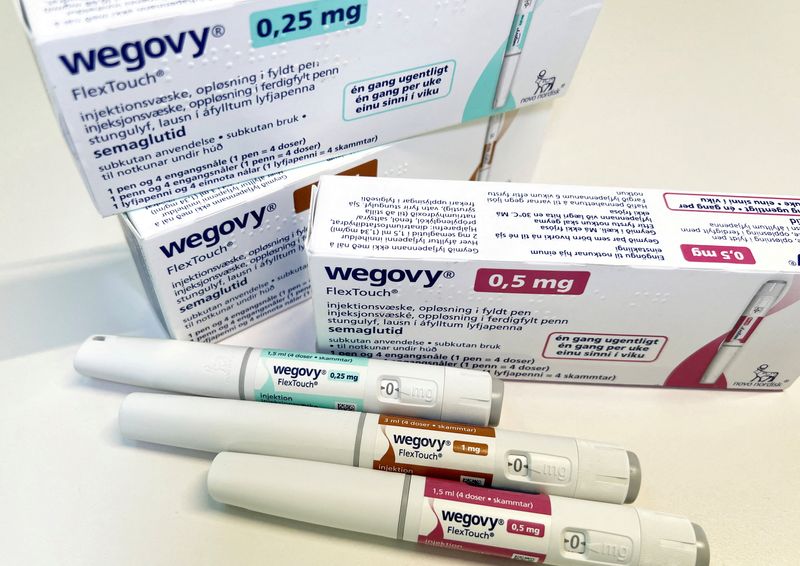Novo Nordisk’s controlling shareholder plans to invest about $35 billion by 2030 By Reuters


© Reuters. FILE PHOTO: Injection pens and boxes of Novo Nordisk’s weight-loss drug Wegovy are shown in this photo illustration in Oslo, Norway, November 21, 2023. REUTERS/Victoria Klesty/Illustration/File Photo
(Reuters) -Novo Holdings, the controlling shareholder of Danish obesity drugmaker Novo Nordisk (NYSE:), plans to invest about $35 billion by 2030, CEO Kasim Kutay told Reuters in an interview on Monday.
Novo Holdings would invest about $5 billion a year in the next five years, and that could go up to $7 billion a year by 2030, Kutay said.
The company, the investment arm of the Novo Nordisk Foundation, has 77% of voting shares in Novo Nordisk that makes the blockbuster obesity drug Wegovy and diabetes treatment Ozempic.
Novo Holdings also has controlling stakes in industrial enzymes maker Novonesis, formerly known as Novozymes (OTC:), and manages a portfolio of 160 companies.
Its portfolio comprises investments across life sciences and capital investments in equities, fixed-income assets, and real estate. Kutay said dividend payments from Novo Nordisk, boosted by the popularity of Ozempic and Wegovy, allowed it to reinvest.
The Financial Times first reported on Novo Holdings’ investment plans.
The move comes soon after Novo Holdings said last week it would buy key manufacturing subcontractor Catalent (NYSE:) for $16.5 billion to boost Wegovy output.
Earlier this month, the company also said it was investing in Indian private hospital chain Manipal Hospitals, as it seeks to tap into the growing market potential in Asia.
Kutay on Monday added that India was a core focus for Novo Holdings’ overall Asia strategy, and that it has invested in several companies in the country.
For Novo Holdings, which invests in life science companies and had assets of 108 billion euros ($115.86 billion) at end-2022, its recent investment in India was its largest in Asia to date.
Kutay added that future investments will be focused on countries in Asia, Europe, and North America, and that there were currently no planned investments in the Africa region.
